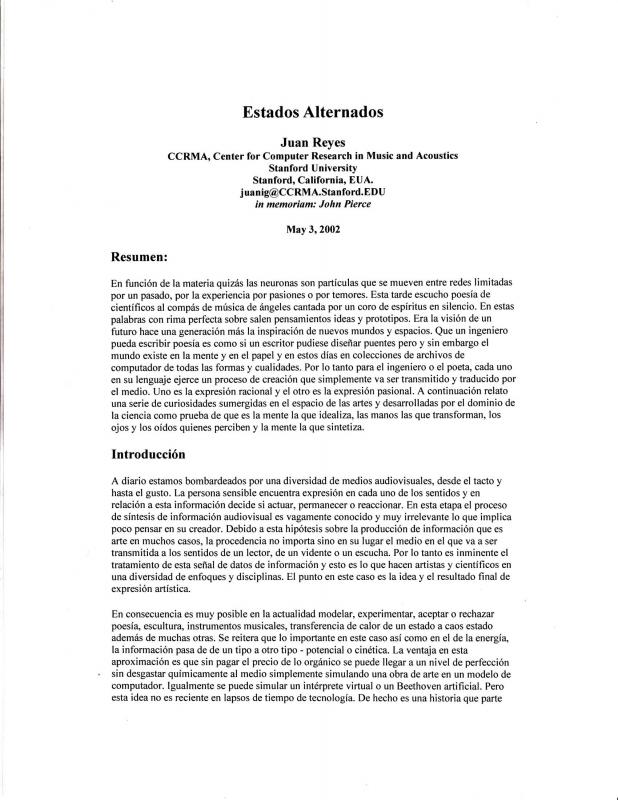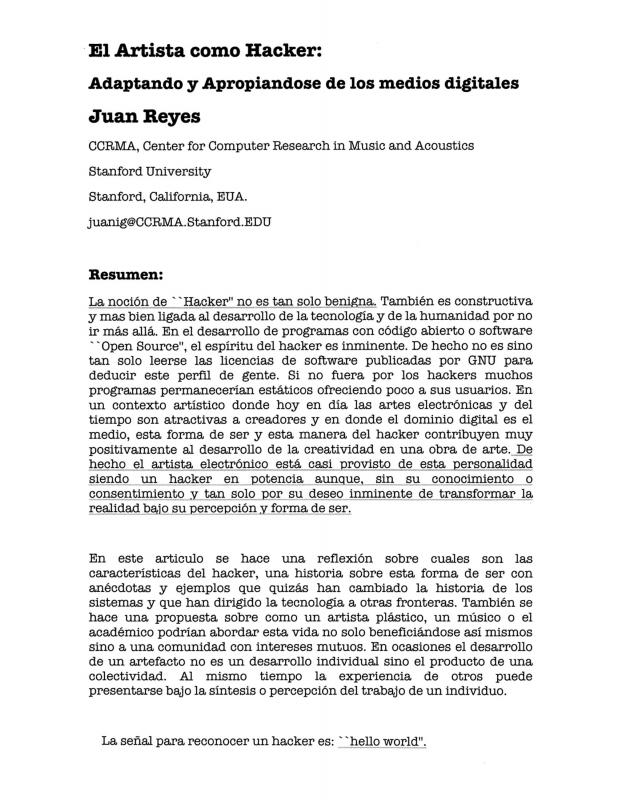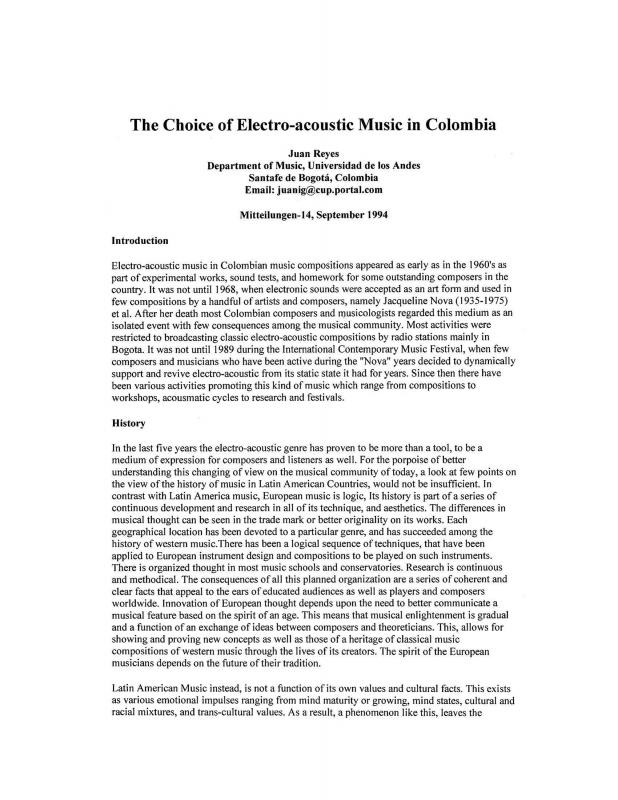This essay is important because it challenges and refutes the cultural connotations associated with the word “hacker” and their impact on the artist (see doc. # 1098706). Juan Reyes (b. 1962) does not advocate subversion through the media, but suggests revisiting the possible combination and use of new technologies in the service of a better distribution of information, not discounting the power of using technologies that in other contexts might be considered obsolete. He believes that the hacker should adopt a particular lifestyle, focusing on both the structural aspect of programming languages (doc. # 1099561) and on the aesthetic aspect of their artistic application, thus developing a set of tools that are compatible with new technologies.
Reyes suggests that this set of tools allows the user to take a critical / skeptical approach to the production and distribution of knowledge, fully aware of the “political” implications of the Internet and the new media and their impact on the evolution of our culture. All of this within the restricted nature of the Colombian environment that, given its status as a peripheral country, is severely limited in terms of access to technological innovation. Reyes thinks that new media promotes thinking at a discursive level, which is why they encourage the development and circulation of knowledge, which in turn influence the power networks in society.
Juan Reyes is considered one of the few sound artists and electro-acoustic composers in Colombia (doc. # 1098721). Originally trained as a mathematician and systems engineer at the Universidad of Tampa (Florida) and the Center for Computer Research in Music and Acoustics at Stanford University (California), Reyes has increasingly focused on computing, sound art, and computer-generated music. He currently works as a freelance artist, professor at the Universidad de los Andes, and CCRMA researcher at Stanford University.



